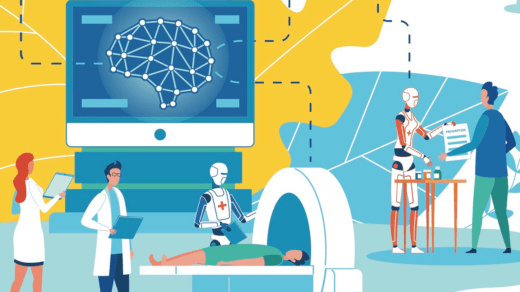
Fad diets promise quick weight loss, but their effectiveness and safety can be questionable. Here, we’ll discuss 30 points highlighting the pros and cons of fad diets and what truly works for sustainable weight loss.
Pros:
- Initial Weight Loss: Fad diets may lead to rapid initial weight loss.
- Simplicity: Some fad diets are easy to follow with clear guidelines.
- Motivation: Quick results can boost motivation to continue.
- Short-Term Goals: Fad diets can help achieve short-term weight loss goals.
- Portion Control: Some fad diets emphasize portion control.
- Structured Plans: Fad diets offer structured meal plans.
- Variety: Some fad diets introduce new and interesting foods.
- Community Support: Some fad diets have supportive communities.
- Detoxification: Fad diets may focus on detoxing the body.
- Cutting Processed Foods: Many fad diets reduce processed food consumption.
- Dietary Awareness: Fad diets can increase awareness of eating habits.
- Breaking Habits: They can help break unhealthy eating habits.
- Eliminating Sugar: Some fad diets eliminate added sugars.
- Reducing Junk Food: Fad diets discourage junk food consumption.
- Initial Success: Achieving quick results can be satisfying.
- Structured Meal Timing: Some fad diets have structured meal timings.
- Education: Fad diets may introduce people to dietary concepts.
- Curbing Overeating: They may help curb overeating tendencies.
- Enhanced Hydration: Some fad diets emphasize increased water intake.
- Digestive Health: Fad diets can promote better digestion.
- Low-Calorie Options: Some fad diets offer low-calorie meal options.
- Reduced Cravings: Fad diets can reduce cravings for unhealthy foods.
- Initial Energy Boost: Weight loss can result in increased energy levels.
- Better Self-Control: Following a diet plan can enhance self-control.
- Social Support: Shared fad diets can create a sense of community.
- Temporary Benefits: Fad diets can lead to temporary health improvements.
- Improved Blood Sugar: Some fad diets help stabilize blood sugar levels.
- Balanced Nutrient Intake: Fad diets can lead to a more balanced nutrient intake.
- Experimentation: Trying different diets can lead to dietary experimentation.
- Self-Discovery: Fad diets may lead to insights about personal dietary preferences.
Cons:
- Unsustainability: Fad diets are often unsustainable for the long term.
- Yo-Yo Dieting: Rapid weight loss and regain (yo-yo dieting) can be harmful.
- Nutrient Deficiencies: Fad diets can lead to nutrient deficiencies.
- Muscle Loss: They may result in muscle loss alongside fat loss.
- Metabolism Impact: Fad diets can slow down metabolism.
- Lack of Balance: Fad diets often lack balance and variety in meals.
- Loss of Muscle Mass: Muscle loss contributes to reduced metabolic rate.
- Long-Term Health Risks: Fad diets may lead to long-term health risks.
- Psychological Impact: They can lead to an unhealthy obsession with food.
- Social Isolation: Strict diets may limit social interactions involving food.
- Financial Cost: Fad diets and supplements can be expensive.
- Dietary Restrictions: They impose restrictive dietary rules.
- Potential for Disordered Eating: Fad diets can contribute to disordered eating.
- Unrealistic Promises: Many fad diets make unrealistic claims.
- Inaccurate Information: Fad diets often rely on pseudoscientific claims.
- Binge Eating: Restrictive diets can trigger binge eating episodes.
- Guilt and Shame: Dieters may experience guilt and shame when they “cheat.”
- Social Pressure: Social norms may not support fad dieting practices.
- Short-Term Focus: Fad diets prioritize short-term goals over long-term health.
- Overemphasis on Weight: Fad diets often prioritize weight loss over overall health.
- Inconsistent Results: Fad diets work differently for each person.
- Lack of Education: They rarely provide education on sustainable healthy eating.
- Water Weight Loss: Initial weight loss is often due to water loss, not fat loss.
- Lack of Scientific Backing: Many fad diets lack scientific support.
- Rapid Weight Regain: Fad dieting can lead to rapid weight regain.
- Repetitive Meals: Lack of variety can lead to boring, repetitive meals.
- Dietary Confusion: Constantly switching diets can lead to dietary confusion.
- Dietary Extremism: Fad diets often promote extreme dietary habits.
- Loss of Muscle Mass: Muscle loss contributes to reduced metabolic rate.
- Harmful Supplements: Fad diets may encourage the use of harmful supplements.
In conclusion, while fad diets may offer initial weight loss, they often come with significant drawbacks and are generally unsustainable for long-term health. Instead, achieving sustainable weight loss and overall well-being typically involves adopting balanced and evidence-based dietary practices, regular physical activity, and addressing the underlying factors contributing to excess weight. It’s essential to prioritize long-term health and seek guidance from qualified healthcare professionals when pursuing weight loss goals.




